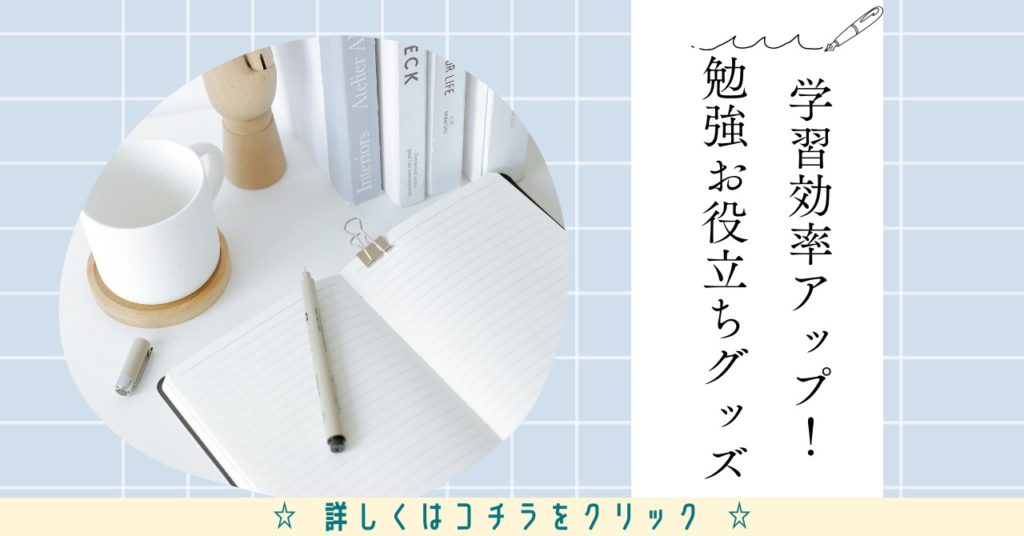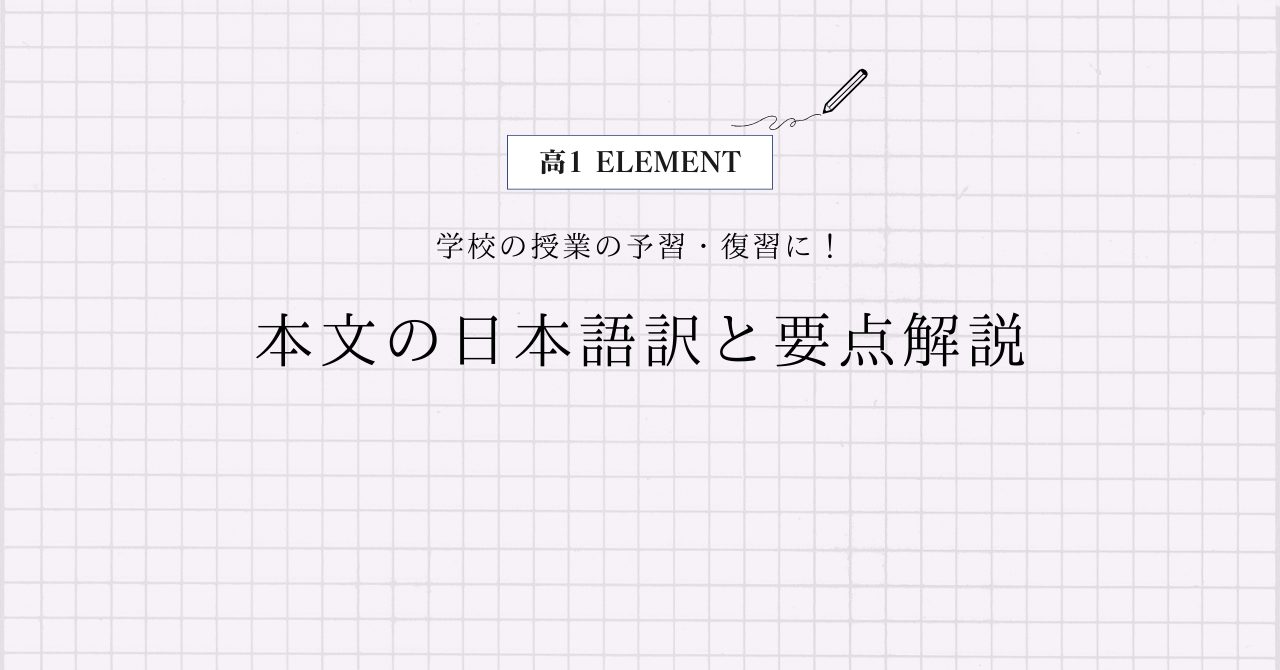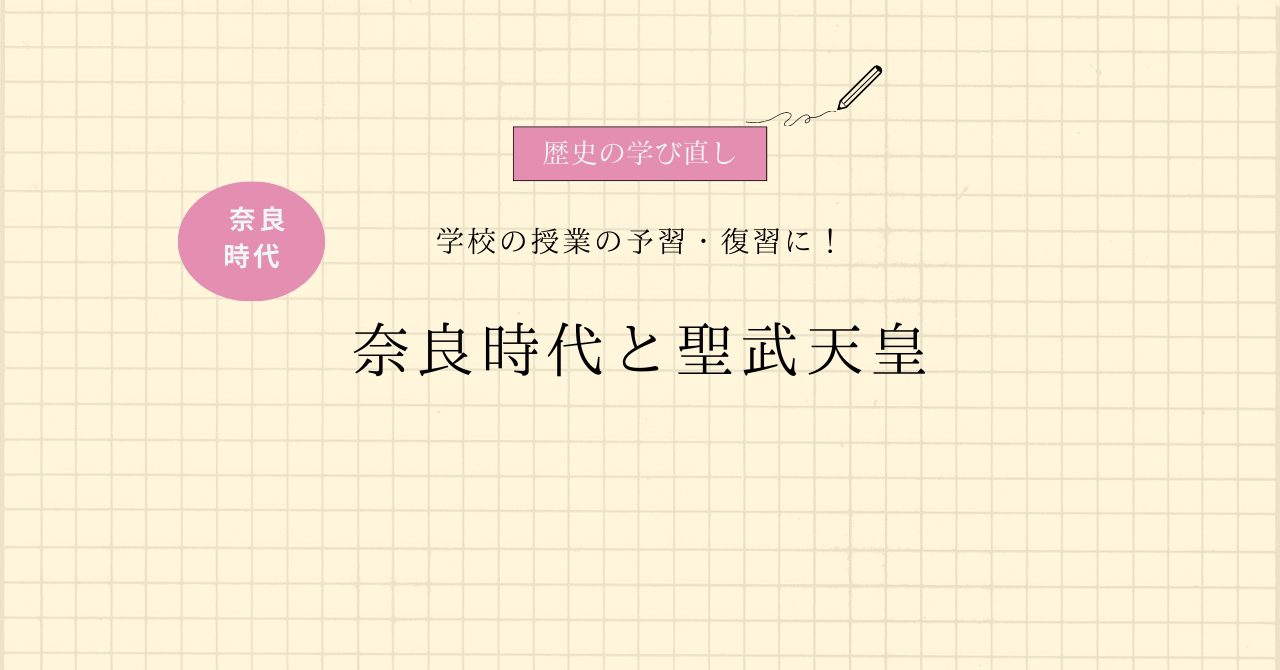三省堂 高1ELEMENT Lesson3 Section2の本文の日本語訳と重要箇所の解説です。
Lesson3-1, 3-3, 3-4の解説はこちらからご覧ください。
>高1ELEMENT Lesson3 Section1 本文和訳
>高1ELEMENT Lesson3 Section3 本文和訳
>高1ELEMENT Lesson3 Section4 本文和訳
- ELEMENT Lesson3 Section2 本文と日本語訳
- ELEMENT Lesson3 Section2 重要事項の解説
- Since they were driven by a love of their home and its nature, Melati and Isabel started Bye Bye Plastic Bags in October 2013.
- Their aim was to put a ban on the use and sale of single-use plastic bags in Bali to stop plastic pollution.
- Their first efforts focused on giving out non-plastic bags, such as net bags, newspaper bags, and 100% organic material bags, to local shops.
- They also began to teach locals and let them know about the pollution problems.
- In order to educate all the island on the dangerous effects of single-use plastic bags, Melati and Isabel thought that government policies needed to change.
- They decided that they should collect one million signatures so that officials would not ignore them.
- To collect that many signatures, they came up with a great idea: collecting signatures at the very busy Bali International Airport.
- They went there and talked with officials, but these people wouldn’t let them do so at first.
- The sisters talked again and again, and finally they were allowed to collect signatures there.
- As a result of this great campaign, they were invited to talk about it on TV programs and also at the United Nations.
- ELEMENT Lesson3 Section2 まとめ
ELEMENT Lesson3 Section2 本文と日本語訳
Since they were driven by a love of their home and its nature, Melati and Isabel started Bye Bye Plastic Bags in October 2013.
「メラティとイザベルは故郷と故郷の自然への愛に突き動かされて、2013年10月に『バイバイ・ビニール袋』を始めました。」
Their aim was to put a ban on the use and sale of single-use plastic bags in Bali to stop plastic pollution.
「彼女たちの目的は、プラスチック汚染を止めるために、バリ島で使い捨てのビニール袋の使用と販売を禁止することでした。」
Their first efforts focused on giving out non-plastic bags, such as net bags, newspaper bags, and 100% organic material bags, to local shops.
「彼女たちの最初の取り組みは、地元のお店に網のバッグや新聞紙のバッグ、有機材料100%のバッグのようなプラスチック製でないバッグを配ることに注力しました。」
They also began to teach locals and let them know about the pollution problems.
「また、地元の人々にも指導し、彼らに汚染問題について知ってもらうことを始めました。」
In order to educate all the island on the dangerous effects of single-use plastic bags, Melati and Isabel thought that government policies needed to change.
「使い捨てビニール袋の危険な影響について島全体に教えるために、メラティとイザベルは政策が変わる必要があると考えました。」
They decided that they should collect one million signatures so that officials would not ignore them.
「彼女たちは、役人たちが無視しないように、100万人の署名を集めるべきだと思いました。」
To collect that many signatures, they came up with a great idea: collecting signatures at the very busy Bali International Airport.
「それほど多くの署名を集めるために、彼女たちは素晴らしいアイディアを思いつきました。とても人が多いバリ国際空港で署名を集めるというアイディアです。」
They went there and talked with officials, but these people wouldn’t let them do so at first.
「彼女たちはそこに行って、役人たちと話しましたが、この人たちは彼女たちがそうするのを初めは許しませんでした。」
The sisters talked again and again, and finally they were allowed to collect signatures there.
「姉妹は何度も話して、そしてついにそこで署名を集めることを許されました。」
As a result of this great campaign, they were invited to talk about it on TV programs and also at the United Nations.
「この素晴らしい運動の結果、彼女たちはそのことについて話すよう、テレビ番組、そして国際連合にも招待されました。」

ELEMENT Lesson3 Section2 重要事項の解説
Since they were driven by a love of their home and its nature, Melati and Isabel started Bye Bye Plastic Bags in October 2013.
この“since”は「~だから、ので」という理由を表す接続詞です。“because”や“as”と同じ意味になります。
“they”は“Melati and Isabel”を指していますね。
“driven”は“drive”の過去分詞形で、「受動態」として使うと「に突き動かされる」という意味になります。
“love”は「愛、愛情」、“home”は「家、故郷」、“nature”は「自然」という名詞で、“its”は“their home”を指しています。
“of”は前置詞で,”A of B”の形で「BのA」というように後ろから前に訳します。
“plastic bags”は「ビニール袋」ですね。
Their aim was to put a ban on the use and sale of single-use plastic bags in Bali to stop plastic pollution.
“Their”は“Melati and Isabel”を指していますね。
“aim”は「目標、目的」という名詞で、“put a ban on~”は「~を禁止する」という表現です。ここでは“to”が付いて「不定詞の名詞的用法」になっています。
“use”は「使用」、“sale”は「販売」という名詞で、“single-use”は「使い捨ての」という形容詞になります。
“to stop”は「不定詞の副詞的用法」になっていて、“plastic”は「プラスチックの、ビニールの」という形容詞、“pollution”は「汚染」という名詞ですね。
Their first efforts focused on giving out non-plastic bags, such as net bags, newspaper bags, and 100% organic material bags, to local shops.
“Their”は“Melati and Isabel”を指していますね。
“first”は「最初の、初めての」という形容詞、“effort”は「努力、取り組み」という名詞です。
“focus on~”は「に焦点を当てる、に重きを置く」といった重要表現で、“give out”は「を配る、外に出す、発する」といった意味になります。
“non-“は「非~、不~」というように、後ろの名詞を否定します。
“such as~”は「~のような」という重要表現ですね。
また,3つ以上の単語を“and”で繋げたいときは,最後の単語の前に”and”を置いて,それ以外はカンマ(,)で繋ぎます。
例えばA, B, C, Dの4つを並べるときは,“A, B, C and D”としてあげます。
“net”は「網」、“newspaper”は「新聞紙」、“material”は「物質、素材」という名詞で、“organic”は「有機の、オーガニックの」、“local”は「地元の」という形容詞ですね。
They also began to teach locals and let them know about the pollution problems.
“They”は“Melati and Isabel”を指していますね。
“also”は「また,さらに」といった副詞で,付け加える役割があります。色々な文で使うので必ず覚えましょう!
“began”は“begin(を始める)”の過去形ですね。
“to”は“teach”と“let”の両方に繋がっていて、どちらも「不定詞の名詞的用法」になっています。
“local”は「地元の人々」、“problem”は「問題」という名詞ですね。
“let 名詞 動詞の原形”で、「名詞に~させてあげる」「名詞が~するのを許す」といった意味になります。“them”は“locals”を指しています。
In order to educate all the island on the dangerous effects of single-use plastic bags, Melati and Isabel thought that government policies needed to change.
“in order to 動詞の原形”は「~するために」という重要表現です。
“educate”は「に教育する、教える」という動詞で、“island”は「島」、“effect”は「影響、効果」という名詞、“dangerous”は「危険な」という形容詞になります。
また、前置詞“on”は「~についての、~に関する」という意味もありますよ。
“all the 名詞”は,“all of the 名詞”の“of”が省略された形です。“all”の品詞としては「代名詞」にあたります。だから冠詞“the”の前にあるんですね。
ただ,訳すときはふつうに前から「すべての名詞」と訳してOKです。つまりは“all 名詞”という形と意味は同じになります。
“thought”の後ろには「接続詞that」があります。
“government”は「政治、行政、統治」、“policy”は「政策、方針」という名詞です。
“need”は「を必要とする」、“change”は「変わる、を変える」という動詞で、“to change”は「不定詞の名詞的用法」になっていますね。
They decided that they should collect one million signatures so that officials would not ignore them.
“They”は“Melati and Isabel”を指していますね。
“decide”は「を決める、~だと思う」といった動詞で、後ろには「接続詞that」があります。
“should”は「~すべきだ、~のはずだ」という助動詞で、“collect”は「を集める」という動詞です。
“million”は「100万(の)」という意味で、“signature”は「署名、サイン」という名詞になります。
“so that~”は「~のために」という表現で、後ろには文をつなげてあげます。
“official”は「役人、公務員」という名詞で、この“would not”は「~したくなかった」という主語の「希望」を含む意味合いになっています。
“ignore”は「を無視する」という動詞で、“them”は“Melati and Isabel”を指していますね。
To collect that many signatures, they came up with a great idea: collecting signatures at the very busy Bali International Airport.
“To collect”は「不定詞の副詞的用法」になっていますね。
この“that”は「それほど、そんなに」という意味の副詞です。この意味もしっかり覚えておきましょう。
“they”は“Melati and Isabel”を指していて、“come up with~”は「を思いつく」という表現になります。
「:」は「コロン」と言い,簡単に言うと「つまり」という具合に直前の文章を補足します。コロンを使うときは,コロンの前は必ず文にしないといけない点に注意してください。
“collecting”は「動名詞」になっていて、“busy”は「忙しい、にぎわった」、“international”は「国際的な」といった形容詞、“airport”は「空港」という名詞です。
They went there and talked with officials, but these people wouldn’t let them do so at first.
“They”は“Melati and Isabel”を、“there”は“Bali International Airport”を指していますね。
“talk with(to)~”は「人と話す」という重要表現です。
“these”は“this”の複数形で,「これらは(の)」といった意味になります。
この文の“wouldn’t”と“let”は先ほど説明した通りです。
“do so”は「そのようにする」という意味で、ここでは直前の文のコロン以下の内容を指していますね。
“at first”は「最初、初めは」という表現です。
The sisters talked again and again, and finally they were allowed to collect signatures there.
“again and again”は「何度も」という表現になります。
“finally”は「ついに、最終的に」という副詞で、“they”は“The sisters”を指していますね。
“allow”は「を許す」という動詞で、“allow to 動詞の原形”で「~することを許す」となります。今回は「受動態」になっていますね。
“there”は“Bali International Airport”を指しています。
As a result of this great campaign, they were invited to talk about it on TV programs and also at the United Nations.
“as a result of~”は「~の結果として」という重要表現です。“campaign”は「運動、キャンペーン」という名詞ですね。
“they”は“The sisters”を指しています。
“invite”は「を招待する、頼む」という動詞で、ここでは「受動態」になっていますね。
“to talk”は「不定詞の副詞的用法」になっていて、“it”は「空港で署名を集めること」です。
“program”は「番組」、“the United Nations”は「国際連合」という名詞になります。
ELEMENT Lesson3 Section2 まとめ
以上がELEMENT Lesson3 Section2の日本語訳となります。
「不定詞」「受動態」などの使い方をしっかり確認しておきましょう!
>高1ELEMENT Lesson3 Section1 本文和訳
>高1ELEMENT Lesson3 Section3 本文和訳
>高1ELEMENT Lesson3 Section4 本文和訳
何か分からない点や他に解説してほしい点があれば,お気軽にコメントしてください!



コメント